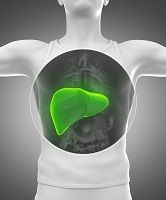Article
Translational Medicine Holds Hope for Liver Cancer Patients
Author(s):
Translational medicine should work for many patients with liver cancer, a French research team reported this morning at the 2015 International Liver Congress.

Translational medicine should work for liver cancer , a French researcher reported at the 2015 International Liver Congress in Vienna, Austria.
Jessica Zucman-Rossi, a professor and director of the INSERM/university Paris Descartes in Paris, France, reported on the results of a genome analysis of patients with liver cancer, hepatocellular carcinoma (HCC).
They collected cells from 243 patients whose cancers were at various stages.
“Cancer is a genetic disease,” Zucman-Rossi said, “We sequenced 20,000 genes and found 28,000 mutations.”
“These patients have genes that might be treated and at least one potentially targetable alteration,” she said.
Though the concept is promising, the prospect of getting the various pharmaceutical companies that could have such drugs in development to participate in a unified clinical trial is daunting, said Markus Peck, the secretary general of the European Association for the Study of the Liver, the conference sponsor.
“Cancer is a complex disease and liver cancer is even more complex,” Peck said in a news conference. He said the concept of being able to identify cancer-causing gene mutations and then tie therapies to individual patients’ genetic profiles is a futuristic concept. “I suspect we will have to wait longer to see this happen.”
In their study, the researchers sequenced all the protein-coding genes in patients to identify relationships between patients getting HCC and their exposures to substances like tobacco and alcohol.
In the study, most patients had at least one damaging genetic alteration which could potentially be treated with either an FDA-approved drug or an investigational drug (86% of patients) which has been studied in Phase I to Phase III clinical trials.





